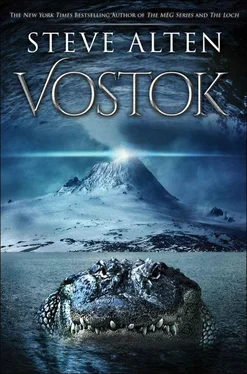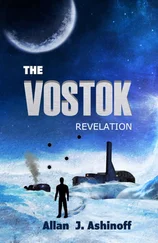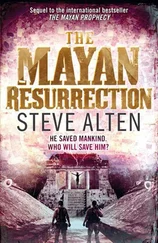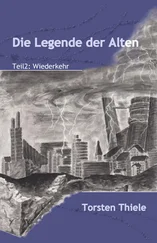Slinging our bags over our shoulders, we grabbed our new ski jackets and followed Caner outside to an awaiting four-wheel-drive jeep, its rear axle sporting triangular-shaped traction belts, its front outfitted with skis. He drove us to another runway where a C-130 transport was being loaded through its rear cargo hold. Maneuvering around pallets of supplies, he parked as close as he could to the open entrance.
“This is as far as I go, gentlemen. Find a seat on board and try to catch some sleep. Oh, and be sure to remove your boots. This is a lightly pressurized transport plane, and your Wellington boots, unlike your feet, aren’t designed to expand.”
Accepting his parting gift — a set of earplugs — we exited the jeep and made our way up the ramp with our gear and into the body of the military-outfitted Hercules. We passed the in-flight bathroom (a port-a-potty strapped to a cargo palette at the center aft of the plane) and located two vacant spots on rows of bench seating that faced one another. Stowing our gear, we removed our boots and sat, leaning back against a wall of webbed straps like paratroopers. Our window — one of only six in the cargo hold — was a mere four inches in diameter.
True leaned over and punched me on the shoulder.
“Ow. What was that for, you big lummox?”
“That was for marrying my sister and gettin’ me stuck on this ridiculous trip.”
Men in beards as thick as True’s filed in along either side of us, squeezing us in like sardines. Some were private contractors, a few were scientists, and none seemed especially happy to be on board.
Another twenty minutes passed before the cargo hatch was closed. A few minutes later the plane rumbled across the gravel and dirt tarmac, gaining lift on its massive wings. The noise from the Hercules’s four engines sent True and me on a pocket-to-pocket search for our earplugs.
For the next third of a day, we slept and woke in our throttling, pitching funhouse of steel and humanity. I cursed my bladder, which forced me to inch my way through rows of dozing bodies only to enter a tilted toilet shed of sloshing urine and excrement, wedging myself in as I peeled away three layers of clothing just to free my organ and pee — all while the cargo hold rose and plunged beneath me like a bucking bronco.
Three times I repeated that journey, four hours I slept, and True punched me twice more before we mercifully landed at Davis Station on the eastern coast of Antarctica.
Davis Station, East Antarctica
Barely awake, I grabbed my gear and followed True down the rear exit ramp of the aircraft, only to have my unprotected eyes assaulted by a brilliant hazy-white wonderland of ice. Seconds later, a forty-mile-an-hour gust of minus twenty-seven-degree wind blasted us in the face with a flurry of frozen crystals and abominable cold.
True turned to me and I could read his thoughts: Welcome to East Antarctica — asshole .
The two of us struggled to position our goggles on our faces as the other passengers pushed by, shaking their cloaked heads at our lack of preparedness.
Once I could see through my tinted eyewear, I stepped down from the plane and onto the frozen runway to get my bearings. Prydz Bay was to my left. I knew it was the bay because there was a massive tanker frozen in its icy grip. Beyond the ship were jagged hills that I learned were actually the tops of icebergs. Had the vessel not been there, the alabaster geology would have looked no different than the rest of our surroundings, and I wondered if any rookie expeditioners had ever taken a wrong turn off the base and simply walked out to sea.
To my right was the plane’s exodus — sixty-plus passengers making their way to a series of lime-green-colored metal buildings connected by an enclosed walkway.
I followed True, using his girth to shield me from the wind.
Waiting for us inside, checking names off of his clipboard list, was the Davis Station flag officer, a senior geologist named Kyle Trunk.
“Names?”
“Zachary Wallace and True MacDonald.”
The scientist’s hazel eyes took their inventory. “Well, well, so the hotshot marine biologist and his Scottish lackey have finally—”
The flag officer never got out the word arrived . Having spent most of the last seventy-two hours cramped on planes while he was forced to remain sober, True was in no mood for a fraternal tongue-lashing.
Smiling, he grabbed a fistful of the man’s crotch and squeezed hard. “Now, who are ye callin’ a lackey, laddie? Don’t ye ken who I am? I’m the prince of Scotland, and it would be best for your future kin if ye bloody well treated me as such.”
The scientist’s face flushed purple as he gurgled a frightened, “Sorry.”
True released him. “Now be a good boy and show us to our rooms. I’m in need of a shyte, shower, and sleep.”
Kyle Trunk backed away. “Davis rations its water supply. Showers are limited to one per person every three days for a maximum duration of three minutes.”
“Three minutes? Tha’s barely enuff water tae clean my pecker. The bloody place is surrounded by ice. Why don’ ye jis melt it?”
“We have to conserve fuel. There’s a bar in the Rec Room across from the mess hall. Why don’t you let me buy you gents a drink when I’m through checking in guests?”
“We’re only staying the night,” I said, stepping between Kyle Trunk and True. “Our destination’s Vostok.”
“Change of plans. We have you scheduled to stay at Davis for two weeks. Captain Hintzmann’s orders.”
* * *
I found Ben Hintzmann in the mess hall eating lunch, the chin hairs of his beard specked with cream drippings from the bowl of New England clam chowder he was gulping down.
“Hey, Doc! Welcome to the ice. You look ‘episched.’”
“ Episched ?”
“Sorry, I’ve been out here way too long. ‘Exhausted, finished, dead and done for.’ It’s Antarctic slang. Hope that transport you rode in on was carrying fresh fruit and veggies. We had none of it this winter, and yours was the first plane of spring. I’d kill for boiled potatoes and carrots.”
“The dude with the clipboard and attitude said we’re not flying out to Vostok for two weeks. Why not?”
“Consider it a blessing. The weather out there makes Davis look like a fall day in Manhattan. There were delays in erecting the dome, plus the crates with the Valkyrie units only arrived two days ago. While Ming organizes her team, I’ll teach you how to pilot the Barracuda here in Prydz Bay.”
“The Barracuda ? Is that the name of our submersible?”
“That’d be her, a narrow three-man acrylic vehicle featuring two Valkyrie lasers, one mounted on each flank. The generators necessary to power those puppies will remain on the surface, attached by fiber-optic cable, but the Barracuda will house miniature fuel cells capable of powering one four-hour laser burn — enough to get us topside in case of an emergency. Feel better now?”
I smiled. In fact, I did feel better… a lot better. The possibility of having our sub detach from the Valkyries’ power supply unit had been among my worst fears. Apparently, Hintzmann’s too. He had addressed it, and now I could rest more easily.
“I’m feeling episched, so I’m going to bed. Wake me in a day.” Stealing Ben’s soup, I raised the bowl to my lips and drained it, then headed off to my living quarters, a private room negotiated by my Highland “lackey.”
* * *
Thirty hours later, True, Ben, and I stood on the frozen waters of Prydz Bay beneath “manky” skies. Manky was Antarctic slang for overcast weather, apparently a common occurrence along the coast. A team of Chinese technicians from nearby Zhongshan Station used six-foot-long bog chisels to test the thickness of the sea ice before bringing out the Barracuda . “More than three whacks to get through and it’s safe to walk on,” Ben informed us. “Less than three and you double-time it back to where you came from.”
Читать дальше












